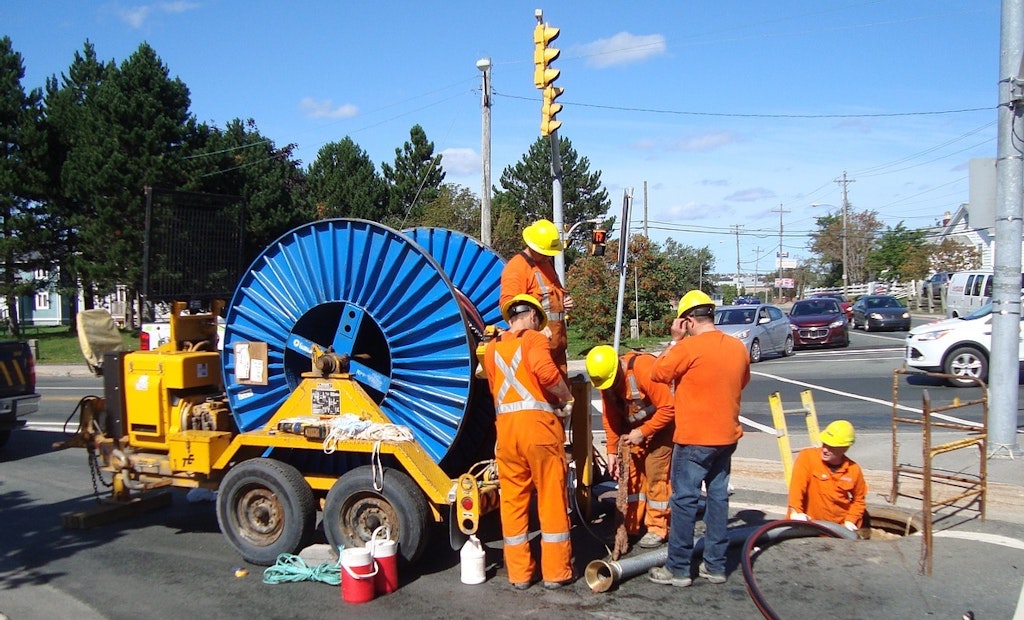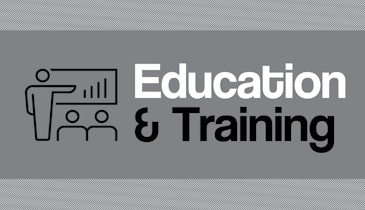While wastewater systems are used around the globe, many people don’t understand what these systems do or why they are important. But public awareness can directly benefit wastewater utilities by decreasing maintenance costs, increasing community support, and improving the efficiency of inspection and rehab work.
Most members of the public, however, aren’t motivated to learn about their sewer systems. It’s on wastewater industry professionals to educate them. “The effect of good public relations is to lessen the gap between how an organization sees itself and how others outside the organization perceive it,” according to Inc.
For example, many people don’t realize that wastewater systems do more than carry waste from toilets to a treatment or disposal site. They help to prevent potentially catastrophic events, like flooded homes, sinkholes and freshwater contamination. Industry workers are well aware of the importance of a healthy wastewater system, and what it takes to maintain one, but not all who use them are.
Working to improve communication between a public works department and the community should be a top priority. A lack of communication creates room for misinformation and misconceptions. On the other hand, an informed public can lead to direct benefits for the wastewater industry.
Familiarity breeds respect.
Understanding what wastewater systems do, and the damage that can take place if they are not properly maintained, makes people more inclined to respect their systems. They avoid flushing inappropriate items down the toilet, and proactively report issues in their systems when they know right from wrong and what the risks are. “Backed-up sewers can cause thousands of dollars in damage to floors, electrical systems, walls, furniture and other belongings,” according to the Insurance Information Institute. “Most homeowners may not realize that they are responsible for the maintenance and repair of their house or sewer lateral.”
No one wants to pay for something they don’t think they need.
Taxpayers are more likely to support bonds for water and sewer system upgrades — from infrastructure improvements to new equipment — if they see the value in the work. Without understanding where their money is going, and how those expenditures will benefit them in turn, communities are less inclined to provide support for their public works department. Many cities lose excessive amounts of water due to damaged, aging pipes, and the longer it takes to get the funding for repair or replacement, the greater the issues become. If ignored long enough, deteriorating pipes can impact the community as a whole, as in the case of Freeport, Illinois, where a major water main break shut down schools and prompted a citywide boil order.
Advance notice means less inconvenience.
Sewer inspections and rehab work can be completed more efficiently when workers can easily communicate with homeowners, if needed, to complete work on or around their property. For example, Envirosight’s door hangers can be distributed to neighbors and businesses ahead of inspections to let them know what to expect and when, so the work doesn’t come as a surprise.
An aware community is an alert community.
Safety for those working in the field increases when the impacted neighbors know to drive cautiously around maintenance sites for upcoming projects. Like other construction workers, sewer industry professionals spend time on, under and around roads and are constantly at risk of injury. The more warning you can give people who will be driving through the area, the lower the risk becomes.
Community efforts
The Lake Stevens Sewer District, located just an hour north of Seattle, exemplifies the value that working actively to develop good communication with the community can create.
The district coordinates outreach programs for elementary through high school students to teach them about their wastewater systems and infrastructure. These lessons also encourage students to share what they’ve learned with other members of their households, like parents and siblings. The programming allows Lake Stevens Sewer District to build a positive relationship with the community and keep its residents informed about important sewer-related matters.
In turn, this has provided immense benefits to the sewer district. Focusing on kids and emphasizing practical lessons on what can and cannot go down drains, the science behind water and wastewater systems, and the career opportunities available is mutually beneficial, according to the district. It has helped both the community and the district better understand and take care of its systems.
Similarly, the Springfield, Massachusetts, Water and Sewer Commission provides a Watershed Education Program and Wastewater Education Program for local students to tour its watershed and water treatment plant, and the wastewater treatment facility.
Teaching local students about the science behind these systems and providing an interactive learning experience not only proves that the commission is invested in the community but also helps foster students’ interest in related careers. The commission’s website also provides a number of resources for community education, including articles and fliers on the value of water, household leak detection, preventing frozen water pipes, water conservation and more.
A fats, oils and grease program, comprised of informational flyers, posters and on-site presentations, was also held by the commission to educate residential customers on the hazards of grease clogs in their systems. “The goal of the program is to educate residents to understand that the proper disposal of grease and other FOG forming foods is in the garbage, rather than in the sink or toilet,” according to the commission.
Mutual benefit
Not only do these types of programs and free online resources help keep communities safe, they also help the department. With greater knowledge of what wastewater systems do and what steps to take to protect them, repair work is minimized, decreasing costs for the department.
Ultimately, when a utility takes time to invest in its community, its community will invest right back into the system.
To begin building better communication with those in your community, request a free pack of Envirosight's door hangers, ideal for keeping people informed about upcoming inspections.
Visit the Envirosight Storefront






